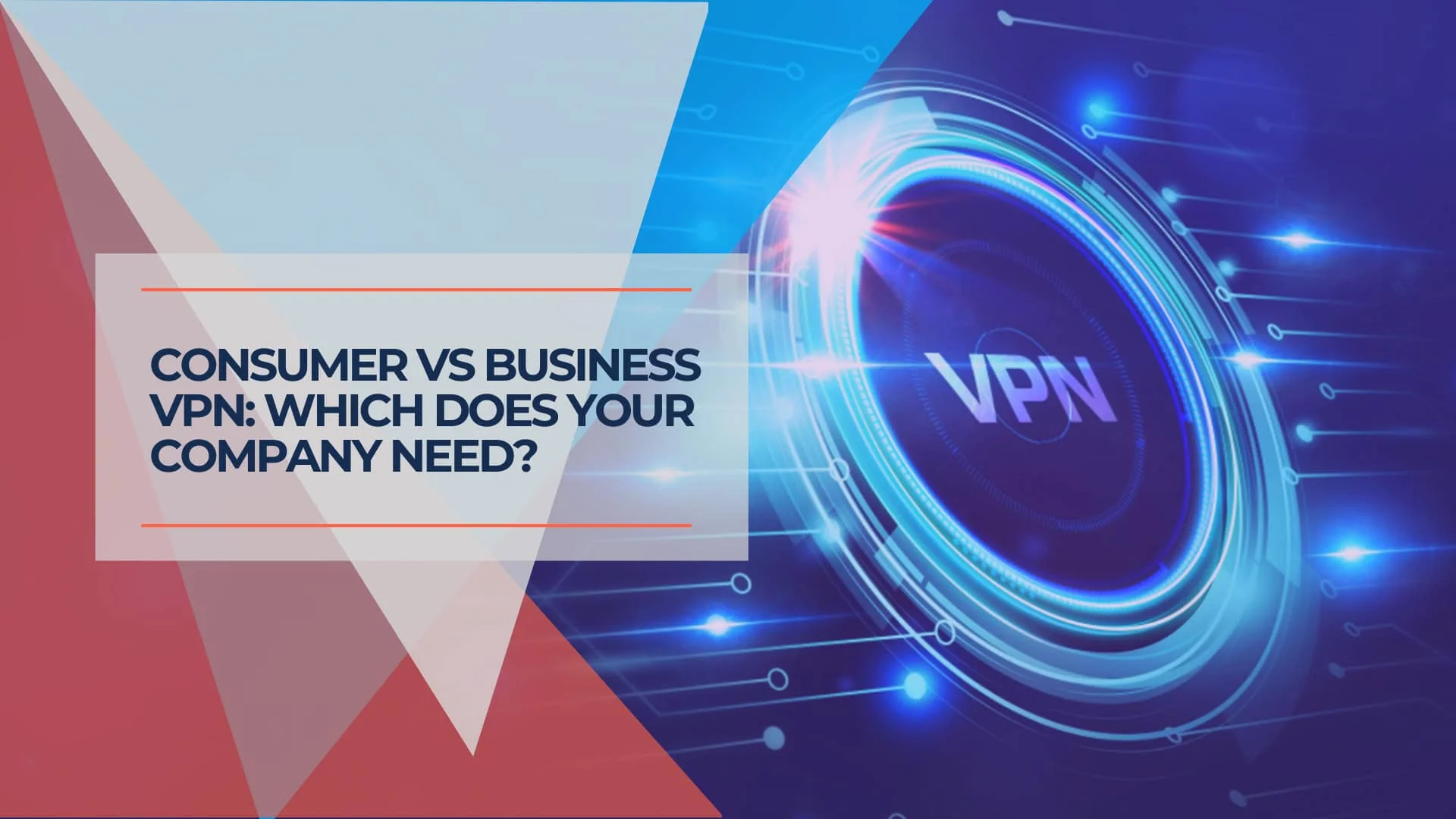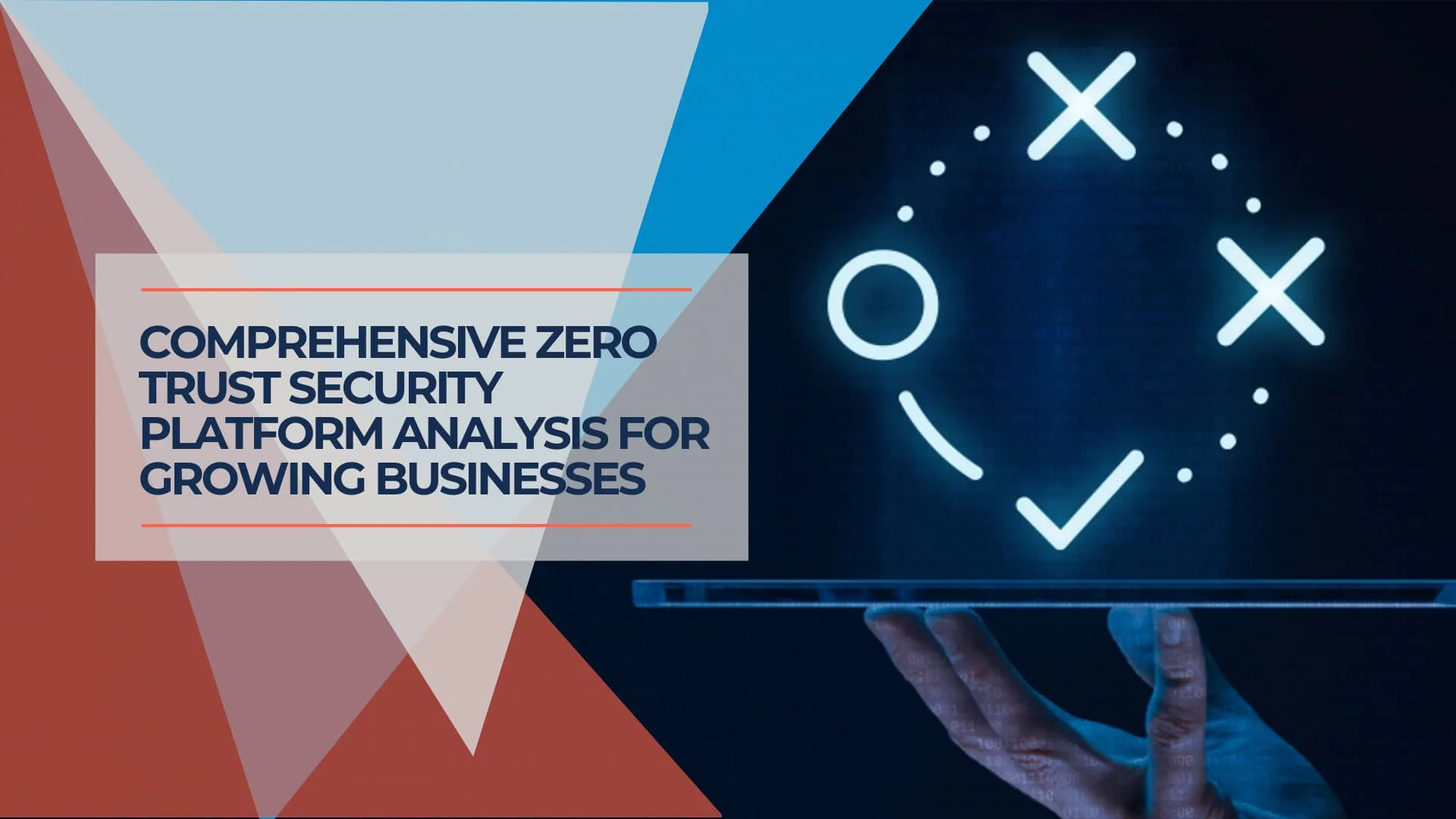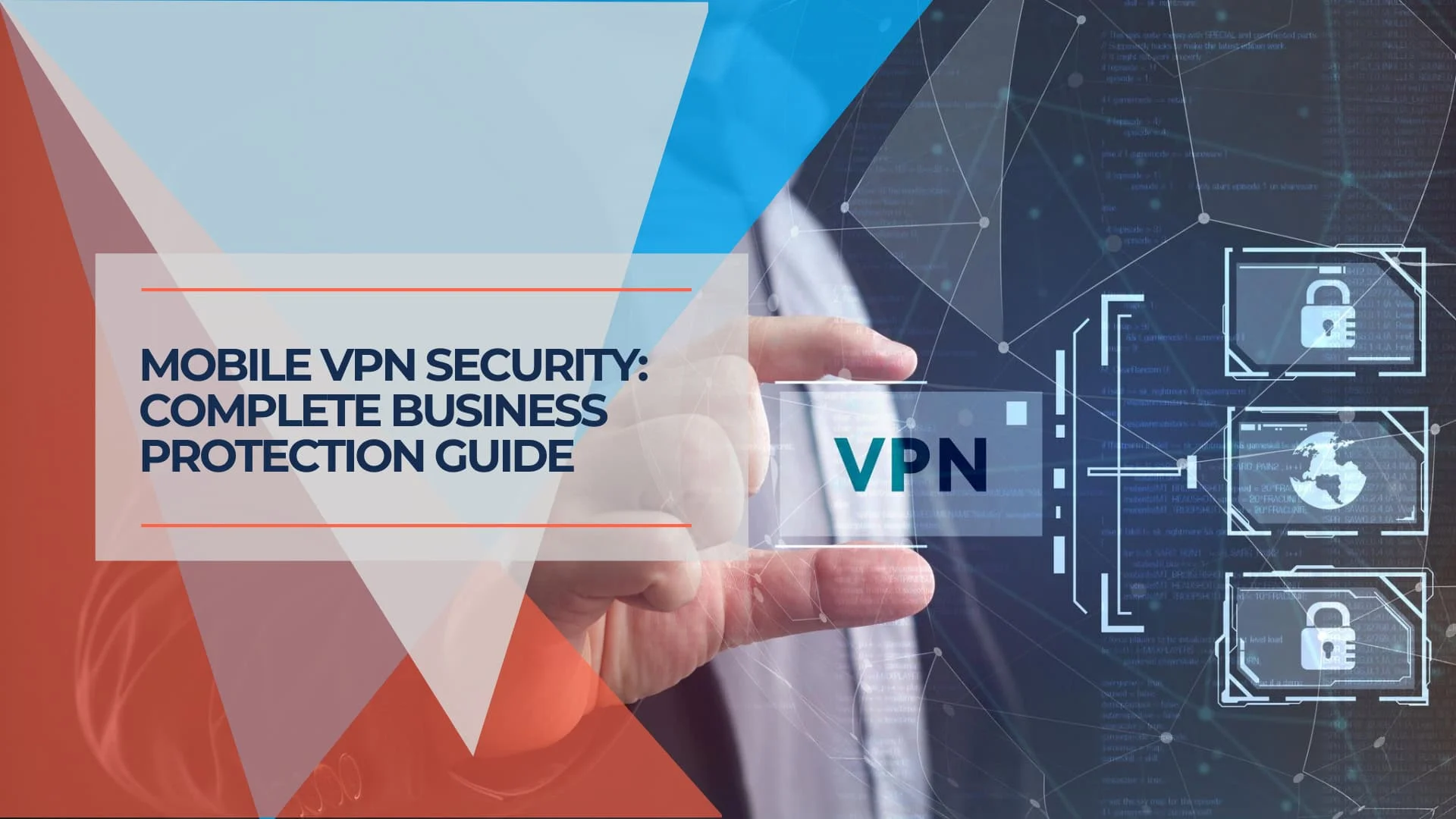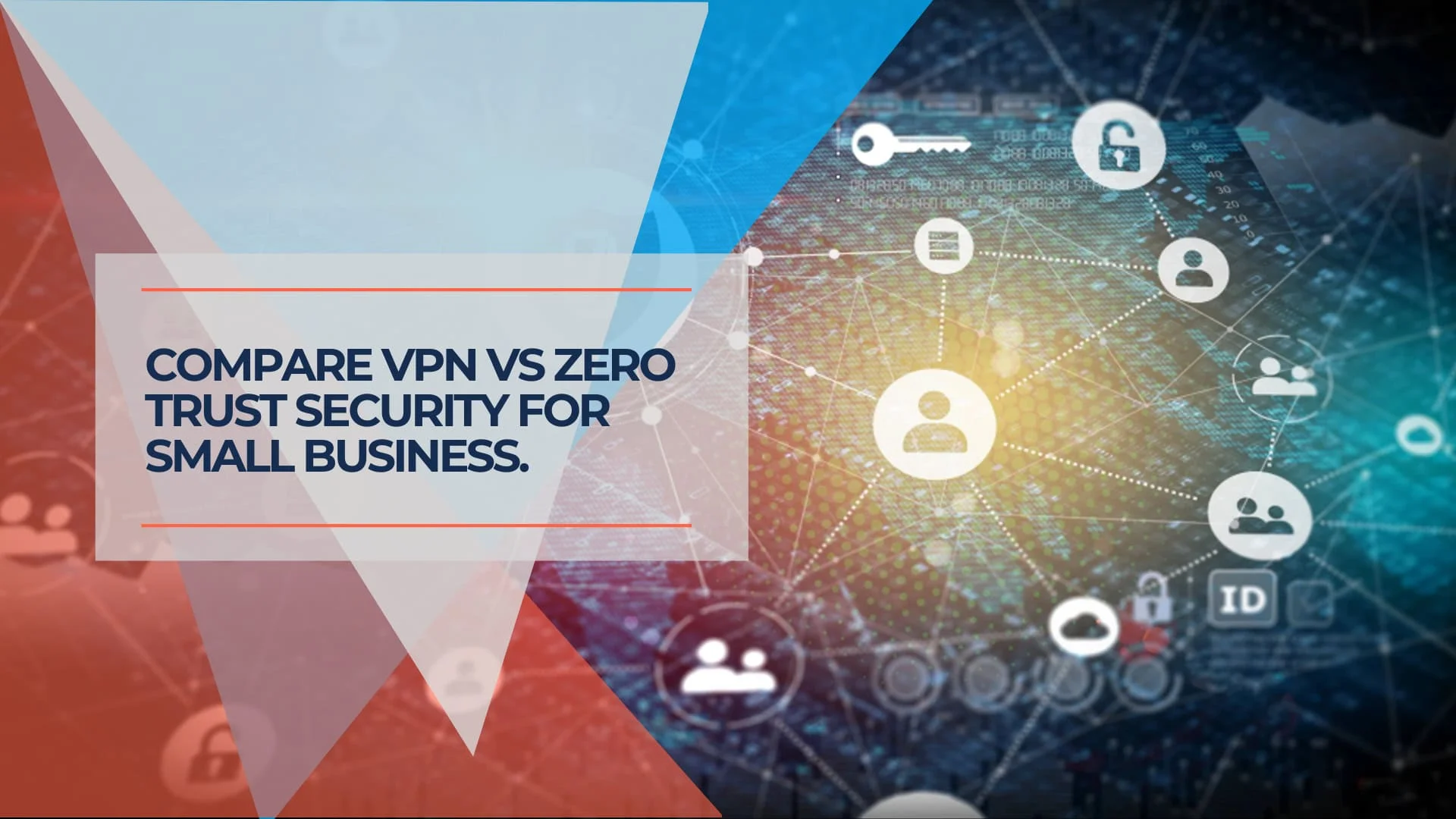Business VPN vs Consumer VPN: What SMBs Actually Need (2025)
Comprehensive comparison of business VPNs vs consumer VPNs for small businesses. Decision framework, cost analysis, recommended solutions, and real-world scenarios to help you choose the right VPN.


Affiliate Disclosure: This article contains affiliate links. If you make a purchase through these links, we may earn a small commission at no extra cost to you.
Key Takeaway
Consumer VPNs protect individual privacy. Business VPNs provide centralized management, audit logs, and compliance features. The price difference ($5-7/month vs $8-12/month per user) is justified when you factor in administrative time, security requirements, and team growth. This guide helps you determine which fits your business.
The Core Difference
Both consumer and business VPNs encrypt internet traffic and route it through secure servers. Both protect against public WiFi threats. The difference lies in organizational capabilities rather than encryption technology.
Consumer VPNs are designed for individual privacy: login credentials anyone can use, minimal connection tracking, and no policy enforcement.
Business VPNs are designed for organizational security: centralized user management, detailed audit logs, role-based access controls, and compliance features.
For small businesses, the question isn't "which VPN is better" but "what does our organization need to protect?" For comprehensive security planning, review our 5-step network security audit guide.
When Consumer VPNs Work (And When They Don't)
Consumer VPNs May Work For
- Solo practitioners with no employees or contractors
- Freelancers working independently with no team management needs
- Zero compliance requirements (no HIPAA, PCI-DSS, etc.)
- No sensitive client data handling
- Absolutely no plans to hire in the next 12+ months
Consumer VPNs excel at protecting individual devices on untrusted networks. The lower cost and simpler setup make sense for a freelance designer working from coffee shops. However, this appropriate use case is genuinely narrow.
Consumer VPNs Cannot Provide
- Centralized user management (no way to disable access when employees leave)
- Activity logs showing who accessed what and when
- Role-based access controls for different permission levels
- Integration with Microsoft 365, Google Workspace, or business authentication
- Audit trails required for compliance
- Business-class support with SLA guarantees
When you add a second person, consumer VPN limitations become operational problems. For compliance requirements, consumer VPNs are non-starters. See our small business security compliance guide for industry-specific requirements.
Business VPN Essential Features
| Feature | Consumer VPN | Business VPN |
|---|---|---|
| User Management | Individual accounts, shared credentials | Centralized dashboard, role-based access |
| Activity Logging | Minimal to none | Comprehensive audit trails |
| Authentication | Basic username/password | SSO integration, enforced MFA |
| Support | Email, forums | Dedicated support, SLA guarantees |
| Pricing | $5-10/month per subscription | $8-15/month per user |
Real-World Decision Scenarios
Healthcare Practice: 8 Staff Members
Scenario Analysis
Situation: Medical practice with staff accessing electronic health records occasionally from home for on-call duties.
Decision: A business VPN is required. HIPAA demands audit logs showing who accessed which patient records, when, and from where. Consumer VPNs lack compliance capabilities entirely.
Cost Reality: $1,200-1,440 annually (8 users × $10-12/month). Setup: 4-6 hours. Monthly management: 30 minutes.
Architecture Firm: Contractors + Permanent Staff
Scenario Analysis
Situation: Design firm with 7 permanent staff and 3-8 rotating contractors. Need temporary access to specific project folders without exposing financial data.
Decision: Business VPN with granular access controls. Time-limited contractor accounts that expire automatically. Role-based access ensuring contractors see only assigned projects.
UniFi Alternative for Existing Infrastructure
Firms with UniFi networking can use Identity Enterprise for integrated remote access. Maintains consistent security policies between office and remote locations without separate VPN client software. Learn more about UniFi network planning.
The Five-Question Decision Framework
Answer these questions to determine your VPN needs:
Question 1: Do you need to track who accessed what and when?
This includes compliance audits, security investigations, and regulatory requirements. Healthcare, finance, legal, and many other industries face this requirement.
If YES → Business VPN Required
Question 2: Do you have contractors or temporary workers?
Contractors require temporary access that expires automatically. When contracts end, access must terminate immediately.
If YES → Business VPN Required
Question 3: Do different team members need different access levels?
Not everyone should access all business systems. Accounting staff need financial system access but shouldn't reach customer databases.
If YES → Business VPN Required
Question 4: Does your industry have specific compliance requirements?
HIPAA, PCI-DSS, SOC 2, and other regulatory frameworks create specific technical requirements that consumer VPNs cannot satisfy.
If YES → Business VPN Required
Question 5: Will you hire employees or contractors in the next 12 months?
The cost difference between consumer and business VPN for one or two users is minimal. Starting with business VPN avoids migration complexity.
If YES → Business VPN Recommended
Quick Interpretation
- YES to any of questions 1-4: Business VPN is required
- YES only to question 5: Business VPN is recommended to avoid future migration
- NO to all five: Consumer VPN may be appropriate (genuinely narrow category)
Recommended Solutions
For Solo Practitioners: NordVPN
For individual business owners with no team, no compliance requirements, and no growth plans, NordVPN provides strong encryption across 60+ countries at around $5-7/month on annual plans. Supports up to 10 simultaneous connections.
Limitations: No centralized management, minimal logging, business support, or compliance features. If you hire anyone, you must migrate to a business VPN.
Check NordVPN PricingFor Small Teams: NordLayer
NordLayer provides centralized user management, comprehensive logging, SSO integration with Microsoft 365/Google Workspace, and dedicated support. Annual billing starts at $8/user/month.
Key Features: Team provisioning dashboard, role-based access controls, activity logs, device posture checking, dedicated IP addresses, and enforced split-tunneling policies.
Best For: Small businesses needing straightforward remote access without complex networking requirements. Balances features and complexity well for teams without dedicated IT staff.
For detailed implementation guidance, see our comprehensive NordLayer review.
Get Started with NordLayerFor Privacy-Focused Businesses: Proton VPN Business
Proton VPN Business operates under Swiss jurisdiction and has strong privacy protections. Maintains Proton's transparency and security while adding business management features. Integrates with Proton Mail and Proton Drive for unified security.
Best For: Legal practices, healthcare providers, consulting firms requiring maximum privacy protection. Organizations already using Proton Mail can consolidate security services.
For complete ecosystem details, see our Proton Business Suite review.
Explore Proton Business SuiteFor UniFi Networks: Identity Enterprise
Businesses with UniFi infrastructure can use Identity Enterprise for integrated remote access. It extends existing network security policies to remote users without separate VPN client software. Requires compatible UniFi gateway hardware (Dream Machine Pro, UDM Pro Max, or Cloud Gateway series).
Best For: Businesses with existing UniFi deployments or planning network upgrades. Provides unified management for office and remote access. For guidance on planning, see our UniFi network blueprint guide.
True Cost Comparison
Price comparisons often ignore administrative time and security risk factors that significantly impact the total cost of ownership.
5-Person Team Annual Costs
| Factor | Consumer VPN | Business VPN |
|---|---|---|
| Subscriptions | $360/year | $600/year |
| Setup + Management Time | 29+ hours | 8 hours |
| Time Cost (@$50/hour) | $1,450 | $400 |
| Total Annual Cost | $1,810 | $1,000 |
Business VPNs cost more per subscription but save significant time through centralized management, lowering total cost before considering security risk reduction.
Common Mistakes to Avoid
Critical Mistakes
- Buying consumer VPN licenses for multiple team members
- Ignoring mobile device security in VPN planning
- Not enabling comprehensive logging from day one
- Choosing based solely on subscription price
- Sharing consumer VPN credentials across the team
If budget constraints drive VPN selection, reduce the number of users with business VPN access rather than deploying consumer solutions organization-wide. Prioritize business VPN for users accessing sensitive data while limiting remote access for other roles until budget allows full deployment.
Key Questions Answered
Can I use a consumer VPN for 2-3 employees?
Only if you have zero compliance requirements, handle no sensitive data, and plan no growth. The price difference for 2-3 users ($10-20/month total) rarely justifies consumer VPN limitations. Consumer VPNs become inadequate when you need to track access for accountability or investigations.
Do I need a VPN if our software is cloud-based?
Cloud software reduces VPN necessity but doesn't eliminate it. You may need a VPN for local resources (file servers, printers, databases). Even fully cloud-based businesses benefit from VPN protection on untrusted networks. Some compliance frameworks require a VPN regardless of application hosting.
How do business VPNs handle employee departures?
Business VPNs allow immediate access revocation through centralized management. Disabling the user account means that the person can no longer connect, regardless of configured devices or known credentials. Consumer VPNs require changing shared passwords or canceling individual subscriptions, creating security exposure during offboarding.
What if our VPN provider has a security breach?
Business VPNs from established providers (NordLayer, Proton, Perimeter 81) maintain insurance, comply with security audits, and operate under established business structures. Well-structured VPN services use zero-knowledge architectures where provider breaches don't expose customer data. Business VPN contracts typically include data portability provisions for provider migration.
Making Your Decision
Consumer VPNs remain appropriate only for solo practitioners with no employees, compliance requirements, or growth plans. This is a genuinely narrow category.
Business VPNs become necessary when you add a second person, face any compliance requirements, need differentiated access levels, or plan growth within 12 months. Administrative overhead of managing consumer VPNs across multiple users makes business VPNs more economical before considering compliance benefits.
For most small businesses, a business VPN that matches current needs is the appropriate solution. Start with the business VPN that fits your budget and team size, knowing you can migrate to more capable solutions as needs evolve.
Professional Implementation Support
For Miami-area businesses evaluating VPN solutions as part of broader network security improvements, iFeelTech provides professional assessment and implementation services. We consider remote access requirements, recommend appropriate solutions, handle deployment and configuration, and provide ongoing support.
Businesses with existing or planned UniFi network infrastructure can benefit from professional installation services, including Identity Enterprise configuration.
Schedule Network Security AssessmentRelated Resources
- NordLayer Business VPN Review – Detailed NordLayer analysis
- NordVPN Business Review – Consumer VPN with business features
- Proton Business Suite Review – Privacy-focused ecosystem
- VPN vs Zero Trust Guide – Architecture comparison
- Small Business Network Security Audit Guide – Security assessment
- Small Business Security Compliance Guide – Compliance requirements
- UniFi Network Design Guide – Network planning
- Cybersecurity Services – Professional support
Related Articles
More from Cybersecurity

NordLayer for Business (2025): Complete SMB Security Platform Review
Comprehensive NordLayer review for small businesses. Zero Trust architecture, pricing analysis, implementation guide, and honest assessment of when NordLayer is the right choice vs alternatives.
9 min read

Business VPN Guide: Securing Mobile Sales Teams Beyond Office Networks
Complete mobile workforce security guide for businesses. VPN solutions, credential management, device protection, and implementation framework for sales teams, field technicians, and remote workers.
19 min read

VPN vs Zero Trust for Small Business: What to Pick in 2025
Compare VPN and Zero Trust Network Access (ZTNA) for small businesses. Team-size recommendations, implementation costs, and practical migration steps.
18 min read